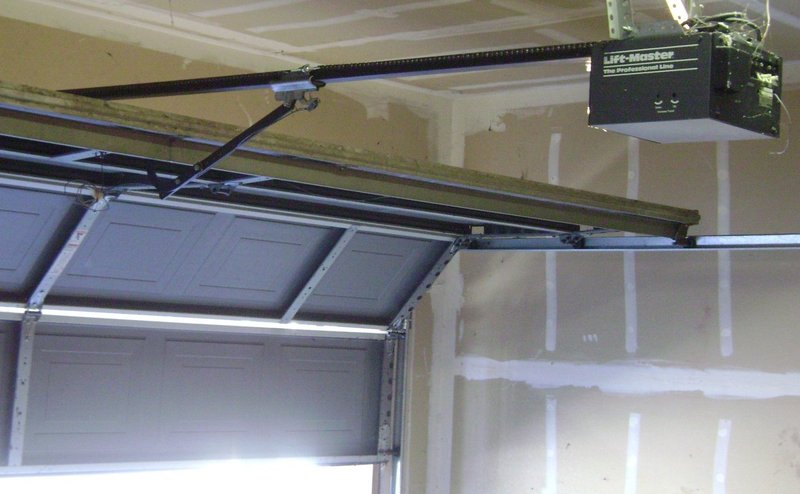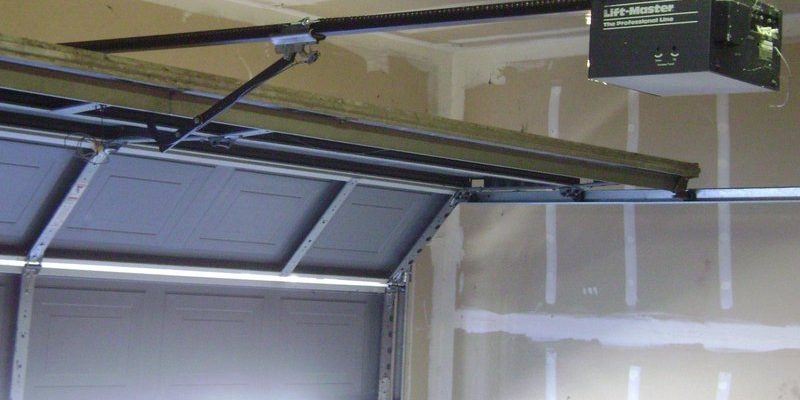
In this article, we’ll break down everything you need to know about garage door openers for homes and businesses. Whether you’re thinking about a *LiftMaster* for your residence or a more robust *Chamberlain* model for your commercial space, it’s crucial to understand the differences and features that matter.
Understanding the Basics of Garage Door Openers
Garage door openers are what bring convenience to our daily lives, allowing us to smoothly open and close our garage doors at the click of a button. They come in several types, including belt drive, chain drive, and screw drive. Each type has its unique strengths. For instance, belt drive openers are quiet—ideal for homes with bedrooms directly above the garage. Meanwhile, chain drive openers are more suited for heavy usage in commercial settings due to their durability.
Here’s a closer look at the main categories:
- Belt Drive Openers: These use a rubber belt, making them quieter and less prone to wear. Great for residential use!
- Chain Drive Openers: These are favored for their strength and speed, suitable for commercial applications.
- Screw Drive Openers: These use a threaded steel rod, requiring less maintenance yet better suited for moderate use.
Each type has its pros and cons, and understanding these can make all the difference in your selection process.
Residential Garage Door Openers: What You Need to Know
When selecting a garage door opener for home use, consider factors like noise level, security features, and smart technology. Residential models are designed with family needs in mind, often offering features aimed at enhancing safety and convenience. For example, many modern openers now include smartphone connectivity. This allows you to monitor and control your garage door from anywhere.
Let’s explore key considerations for residential use:
Noise Level
You might be wondering how important noise levels are for home garage door openers. If your garage is attached to your home or near living areas, choosing a quieter model—like a belt drive opener—is essential. No one wants to wake up or be disturbed by a loud clanging every time someone leaves for work or comes home late.
Security Features
Another critical aspect is security. Many residential openers come equipped with rolling code technology. This feature changes the access code every time you use the remote, making it much harder for unauthorized people to access your garage. This is especially crucial if you store valuable items inside.
Smart Technology
Smart garage door openers allow for additional convenience and control through a smartphone app. With features like remote access, alerts, and surveillance integration, smart models like the *Chamberlain MyQ* can keep your home secure.
Commercial Garage Door Openers: Designed for Durability
Unlike residential models, commercial garage door openers are built for heavy-duty use. They often experience greater wear and tear due to constant operation throughout the day. Therefore, durability and strength are top priorities when choosing an opener for commercial settings.
Here are some elements to consider for commercial solutions:
Heavy-Duty Construction
Commercial openers typically use metal components instead of plastic for added durability. They can handle higher lifting capacities, making them ideal for large garage doors typical in warehouses and businesses.
Speed and Efficiency
Time is money in business, and having a garage door opener that operates quickly is critical. Commercial models are designed for rapid opening and closing cycles, ensuring that employees can quickly move goods in and out.
Customization Options
Many commercial openers also offer customizable features. You might want a unit that can work with heavy-duty spring systems or multi-door operations, depending on your space. This flexibility is particularly beneficial for businesses with more complex needs.
Comparing Remote Types for Residential and Commercial Use
The remote control system for your garage door opener is an essential factor in both residential and commercial settings. The technology behind these systems has evolved, so knowing the right type of remote for your needs makes a significant difference.
For residential use, a simple remote is often all you require, but commercial remotes need to offer additional functionality. Let’s look at the differences:
- Basic Remotes: Simple one-button remotes are usually sufficient for home settings.
- Universal Remotes: For commercial environments, universal remotes that can operate multiple garage door openers are essential.
- Keypad Entry: Many businesses opt for keypad entry systems for easy access, reducing the number of remotes needed.
Choosing the right remote can streamline operations greatly, whether at home or within a bustling commercial environment.
Installation Considerations: DIY or Professional Help?
When it comes to installing a garage door opener, the choice between doing it yourself or hiring a professional can significantly impact your experience. For residential openers, many people find it manageable to install them themselves, thanks to clear instructions and toolkits provided.
Here’s how to weigh your options:
DIY Installation
If you’re handy with tools and have some basic home repair knowledge, installing a residential opener can be straightforward. Kits typically include all necessary hardware and detailed manuals. However, remember it’s crucial to follow safety guidelines to avoid accidents.
Professional Installation
For commercial openers, hiring a professional is often the best route. Given their larger size and complexity, these systems may require advanced knowledge and specific tools for proper installation. A pro will ensure everything is correctly aligned and functioning, providing peace of mind for your business’s needs.
Maintenance Tips for Longevity
Just like a car, a garage door opener needs regular maintenance to keep it running smoothly. Neglecting maintenance can lead to problems down the road. Whether you have a residential or commercial model, staying proactive about maintenance can save you headaches and unexpected expenses.
Here are a few tips:
- Regular Inspections: Check the door and opener regularly for wear and tear.
- Lubrication: Keeping moving parts lubricated can reduce friction and prolong the lifespan of your opener.
- Testing Safety Features: Ensure the safety features, like photo-eyes, are functioning correctly, especially in high-traffic areas.
Setting a calendar reminder for maintenance tasks can keep your garage door opener in top shape.
Budgeting for Your Garage Door Opener
The cost can vary significantly between residential and commercial garage door openers. Residential models typically range from $200 to $600, depending on the features. On the other hand, commercial models may run from $800 to several thousand dollars. Understanding your budget is crucial in determining the best option for your needs.
Additionally, consider long-term costs such as installation and maintenance. Choosing the cheapest option isn’t always wise if it leads to more repairs or replacements down the line. Sometimes, investing upfront in a quality model can pay off in the long run.
Brand Comparisons: What to Know
Different brands offer varying features and reliability, and it’s essential to pick one that fits your needs. Brands like *LiftMaster*, *Chamberlain*, and *Genie* are well-known for their quality residential and commercial models.
When comparing brands, consider:
- Warranty: Look for brands that offer a strong warranty. It’s a good indication of quality and durability.
- Customer Support: Having access to reliable customer service can make troubleshooting issues much smoother.
- User Reviews: Checking online reviews can give you insights into other customers’ experiences and common issues.
Ultimately, choosing a reputable brand can add value and reliability to your investment.
Wrapping It Up: Making the Right Choice
Deciding between a residential and commercial garage door opener depends on your specific needs. By assessing your usage, environment, and features, you can make a well-informed decision. Remember to consider factors such as durability, technology, and support when weighing your options.
Choosing wisely means ensuring ease of use for your home, or seamless operations for your business. So keep these insights in mind, and you’ll be well on your way to selecting the perfect garage door opener for your needs!
